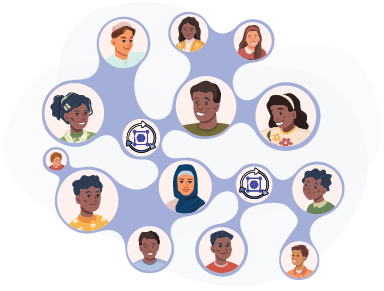Accessibility and Inclusivity:
Decentralized learning models, such as online courses, virtual classrooms, and peer-to-peer networks, can make educational opportunities accessible to a wider range of learners, regardless of their geographic location or socioeconomic status.
This increased accessibility helps address inequities and barriers to traditional, centralized educational systems.
Personalization and Autonomy:
Decentralized learning empowers learners to take greater control over their educational journey, allowing them to customize their learning paths, pace, and content based on their individual needs and preferences.
This fosters a sense of ownership and self-direction, which can lead to higher engagement and better learning outcomes.
Rapid Adaptation and Innovation:
Decentralized learning models can more quickly adapt to changing industry demands, technological advancements, and evolving societal needs.
This agility enables the rapid development and deployment of new educational programs, courses, and learning experiences.
Collaborative Knowledge Sharing:
Decentralized learning environments often facilitate peer-to-peer knowledge sharing, collaboration, and community-building among learners.
This collaborative approach can lead to the cross-pollination of ideas, the sharing of diverse perspectives, and the co-creation of knowledge.
Resilience and Redundancy:
Decentralized learning systems are less vulnerable to single points of failure, as the learning infrastructure is distributed across multiple nodes or platforms.
This resilience helps ensure the continuity of learning opportunities, even in the face of disruptions or challenges.
Cost-Effectiveness and Scalability:
Decentralized learning models can be more cost-effective than traditional, centralized educational institutions, as they often leverage digital technologies and online delivery.
These models can also scale more easily to accommodate the growing demand for lifelong learning and continuous skill development.
By embracing decentralized learning, educational systems can foster greater accessibility, personalization, innovation, and resilience – ultimately empowering learners to thrive in the rapidly evolving digital age.
So if youre ready To decentralize Join Blockcycle!!

